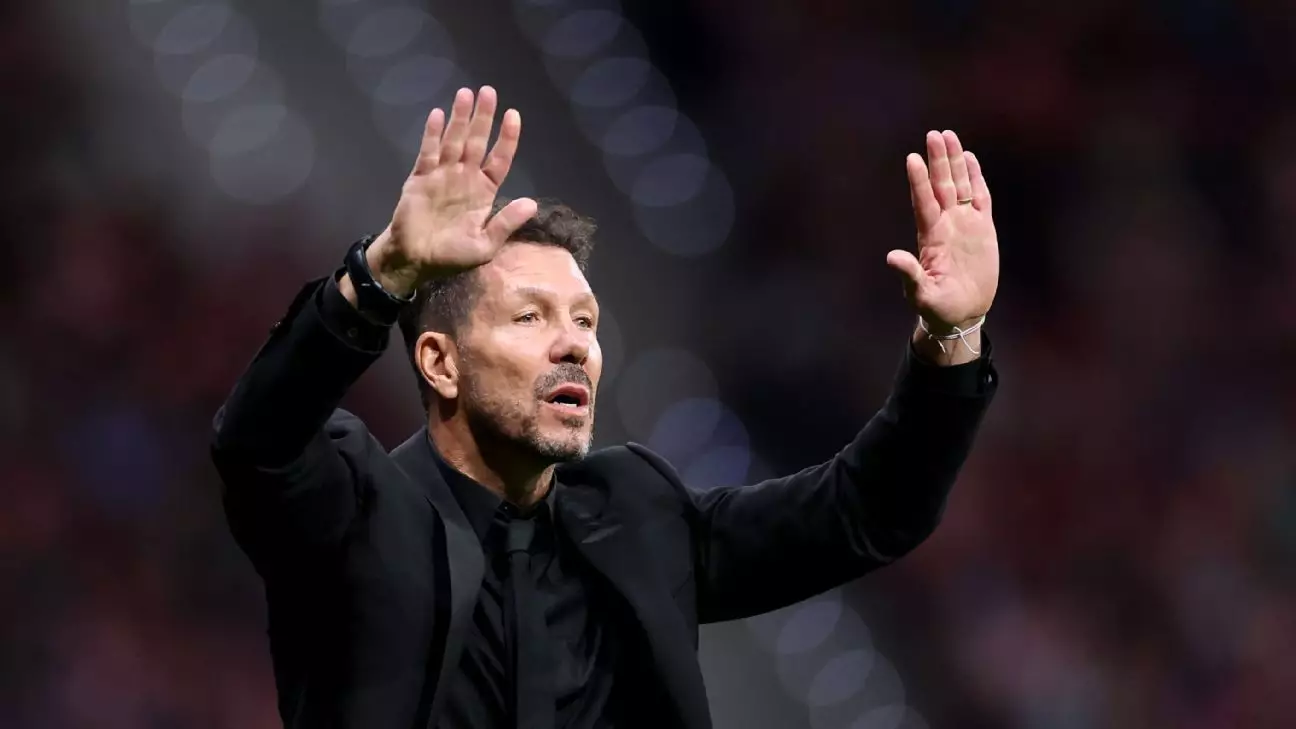The recent Madrid derby between Atlético Madrid and Real Madrid highlighted the fraught relationship between fans, players, and the often volatile atmosphere surrounding high-stakes football matches. Events during this LaLiga game prompted a significant police and club response, as well as sharp criticism from coaches and commentators alike. The immediate issue stemmed from fans hurling objects onto the pitch, resulting in a suspension of play. This incident not only cast a shadow over the spirited rivalry but also served as a wake-up call regarding the responsibilities of both fans and players.
Derbies like the one between Atlético and Real Madrid are known for their charged atmosphere and passionate supporters. The stakes are high, and the intensity is palpable. However, the emotions can sometimes escalate uncontrollably, leading to incidents that mar the spirit of the game. This was vividly illustrated when, after Real Madrid’s Éder Militão scored a goal in the second half, furious fans in the stands responded by throwing lighters and plastic bottles onto the pitch.
Such behavior disrupts not only the match but also the fabric of the sporting community. Players and coaches are under immense pressure to perform, which can lead to moments of provocation and excessive celebratory gestures that inflame fan reactions. Diego Simeone, Atlético’s coach, exemplified this tension by suggesting that players must exercise caution to avoid provoking the crowd. By acknowledging the degree to which actions on the field can influence fan behavior, Simeone pointed to a crucial element often overlooked—the shared responsibility between players and supporters.
Simeone’s remarks illuminated a key debate within football: the extent of accountability that various stakeholders should bear for incidents of fan misconduct. When fans threw objects, the referee was forced to intervene, signaling a need for immediate action to protect the players and ensure a safe playing environment. This suspension of play, lasting nearly twenty minutes, highlighted concerns not just for safety but also for the integrity of the sport.
Following the match, Simeone’s criticisms extended to the players as well. He urged players to adopt awareness regarding their interactions with fans during tense moments. It is an uncomfortable truth that while fans have the responsibility to support their team constructively, players must also recognize that their actions can provoke hostile reactions. Sporting bodies must encourage players to celebrate achievements in a manner that respects the ambiance of the match and does not inflame tensions.
The implications of the fan disruption extended beyond the match itself, raising concerns about the broader culture surrounding football in Spain. After the incident, Atlético Madrid’s officials stated that their security team was collaborating with local authorities to identify and penalize those involved in the disturbances. This was an important step for the club in maintaining a positive image and safeguarding the well-being of all match attendees.
Moreover, as part of a wider discourse on fan behavior, LaLiga had already announced they would take action against a social media campaign promoting racist acts against Real Madrid player Vinícius Júnior. The intersection of fan fervor and unacceptable behavior presents a critical challenge for clubs, leagues, and law enforcement.
The overarching issue is that the football community must work collectively—clubs, players, and fans alike—to foster a culture where support does not escalate into hostility. The Madrid derby reflected an instance where this balance was disrupted. Coaches like Carlo Ancelotti, who praised the referee’s decision to pause the game, recognized the importance of ensuring player safety over the immediate continuation of the match.
The heightened climate of hostility underscored the need for better mechanisms to manage and control fan behavior at stadiums. Fostering environments that promote passionate but respectful fandom would contribute to a more positive matchday experience. Both fans and players should recognize their influence on each other, as a united front can enhance the beauty of the game, rather than diminish it through acts of violence and disrespect.
The lessons emerging from the recent Atlético vs. Real Madrid match extend beyond a mere blemish on a sports event. They urge a reevaluation of the dynamics between fans and players, calling for a reconsideration of how both parties can engage in a manner that respects the game and its integrity. Striking this balance is essential for the future of football.

